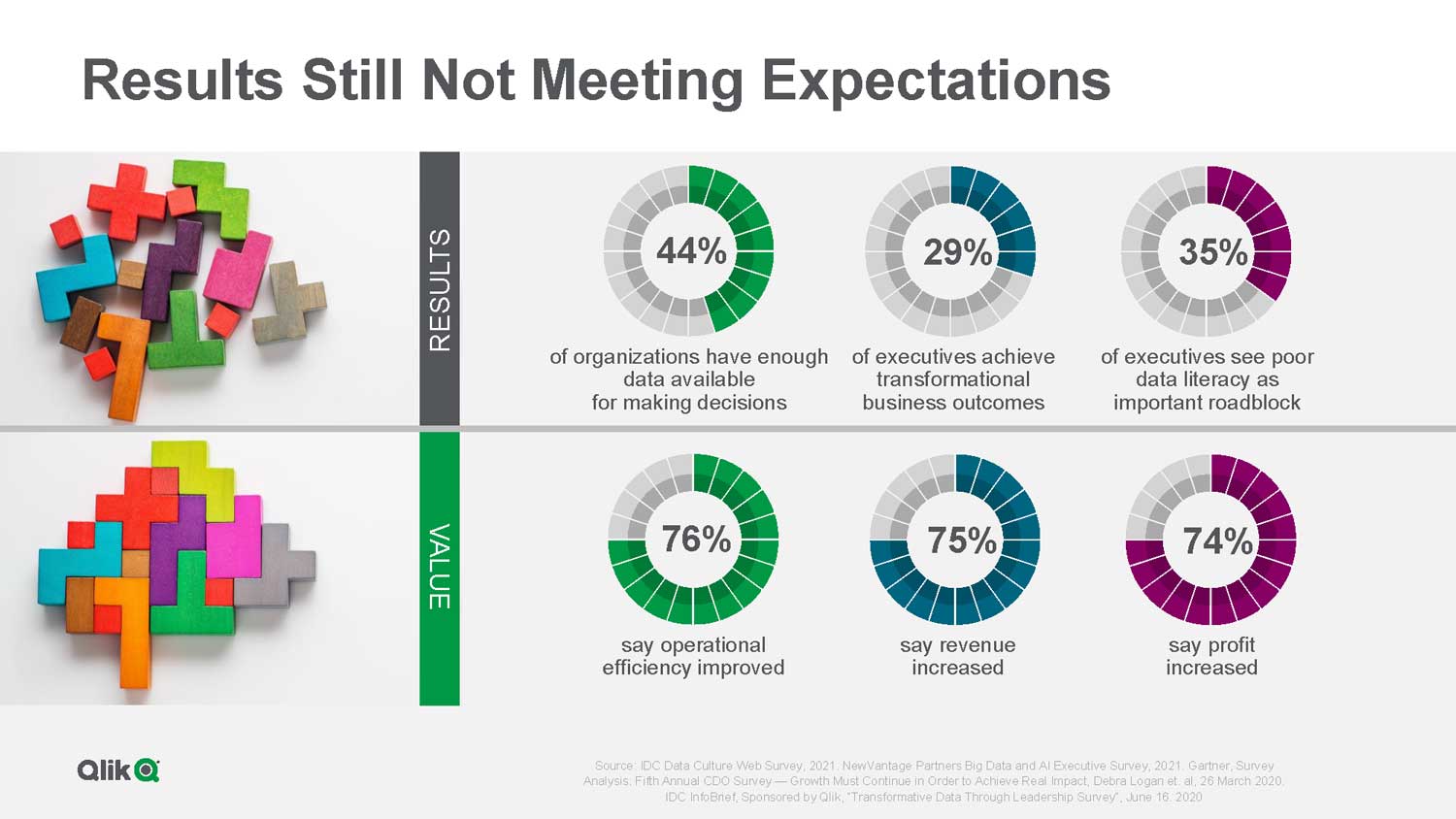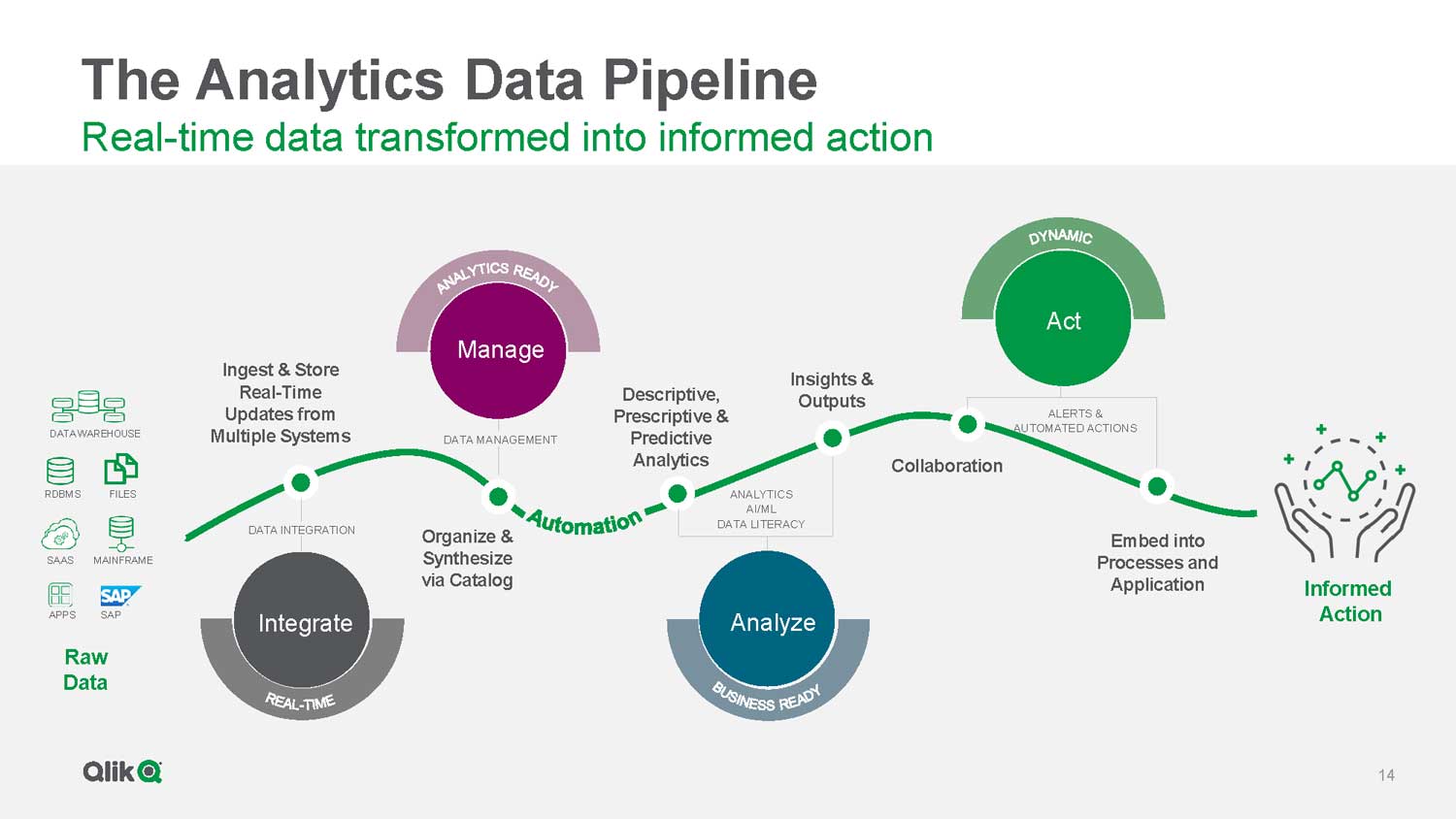
While it has become significantly easier to collect customer data, the issue of making effective use of it — meaning organising the data so that your business can translate it into results — still remains a challenge. Overcoming this challenge was the central theme of the recent Johannesburg leg of the QlikWorld Tour, held in early November 2022 by real-time data integration and analytics solutions provider Qlik.
The event was attended by professionals working in data analytics and data integration, including business intelligence (BI) managers, BI/business analysts, IT managers, IT directors, chief data officers and CIOs.
Keynote speaker Nick Loumakis, regional director for Middle East and Africa at Qlik, explained: “The aim is to drive action with certainty in your business operations. Today, the ability to make decisions fast is a must-have, and not a nice-to-have.
“However, most organisations struggle to make actionable data available, let alone turn it into business value. Recent studies have highlighted this challenge, whereby the results of using available business data are not meeting expectations.”
Unpacking data integration challenges
Loumakis noted that some of the results of these studies — around the issue of making actionable data available — include the following:
- Only 44% of organisations believe they have enough data available for making decisions;
- A mere 29% of executives believe they are able to achieve transformational business outcomes; and
- Only 35% of executives see poor data literacy as an important roadblock to change .
In response to this, noted Loumakis, the Qlik approach involves a convergence between different elements of the business, namely the IT teams and those within the business who need access to the information.
Loumakis continued: “When we see that more than half of decision-makers feel that they don’t have the data they need to make decisions, we realise there is a gap that traditionally separates data integration — driven by IT teams — from business intelligence.
“Business users feel they have access to less information than what is actually available, while IT departments would possibly disagree. In other words, there is a misalignment between the different teams.

“At Qlik, we believe the required business value comes from the intersection between the two teams, and that the convergence drives business value. In order to close this gap between IT departments and business users, Qlik facilitates the creation of the end-to-end analytics data pipeline within your business, thereby solving the complex challenges of transforming data into business value.”
Loumakis clarified that, according to an IDC study, Qlik Cloud, Qlik’s platform for Active Intelligence, delivered real-time information to drive action, accelerating business value with the following outcomes highlighted:
- Some 76% of executives noted that operational efficiency had improved;
- Three-quarters of business decision makers said revenue had increased; and
- About 74% of executives reported that profit had increased.
The analytics data pipeline
Explained Loumakis: “The analytics data pipeline turns raw data into informed action, frees data from its siloes so users can easily find it, and makes data more understandable, thus allowing businesses to take action from it.
“Our vision is a data-literate world, where everyone can use data and analytics to improve decision making and solve their most challenging problems. The Qlik systems and processes allow users to find an easy way to use the information.”
Loumakis said the Qlik analytics data platform is able to integrate with all hosting and sources options, whether on-premises, in the cloud or via a hybrid model.
“We are able to offer this across various pathways,” he noted. “For example, via both software as a service or streaming, we can provide this data integration across all systems and platforms. Once the data is captured, the tools include a data catalogue where the business can access the data, while tools allow for the automation of all manual tasks, allowing users to set their own tasks.
“Qlik helps organisations tackle the complex challenges of transforming their data into business value through a number of steps, which include ‘closing the gaps’, as outlined previously, and creating an analytics data pipeline. This data pipeline is facilitated through a cloud platform, which is enhanced by automation and data literacy. Finally, ‘active intelligence’ is enabled to operate in real time.”

“Data, insights and actions within an enterprise operate along a spectrum,” Loumakis explained. “Organisations stitch together disparate offerings for business value. Issues in unpacking and accessing information across the enterprise include the fact that different areas of the business could be using different tools, the existence of data siloes, compliance, a lack of observability, and the quality of the data itself.
“Our data solutions are able to create a powerful data integration fabric to help data engineers deliver, transform and unify data in real time via automated solutions. The end result is business value facilitated by data that you can trust.”
Local testimonials and support
In addition to the QlikWorld Tour keynote address, several of Qlik’s local customers — including Standard Bank, Sibanye-Stillwater, Unitrans Supply Chain Solutions, Fair Price and Lasher Tools — discussed how the company’s unique approach to data and analytics has assisted with their decision-making processes. Industries represented at the event included such diverse business verticals as financial services, mining, supply-chain management, retail and construction.
The QlikWorld Tour Johannesburg was supported by local Qlik partners, including gold sponsors Insight Consulting, iOCO Analytics Solutions and RIC Consulting, and silver sponsors Altron Systems Integration, B2IT and Decision Inc.
About Qlik
Qlik’s vision is a data-literate world, where everyone can use data and analytics to improve decision making and solve their most challenging problems. A private company, Qlik offers real-time data integration and analytics solutions, powered by Qlik Cloud, to close the gaps between data, insights and action. By transforming data into Active Intelligence, businesses can drive better decisions, improve revenue and profitability, and optimise customer relationships. Qlik serves more than 38 000 active customers in over 100 countries.
- This promoted content was paid for the party concerned




